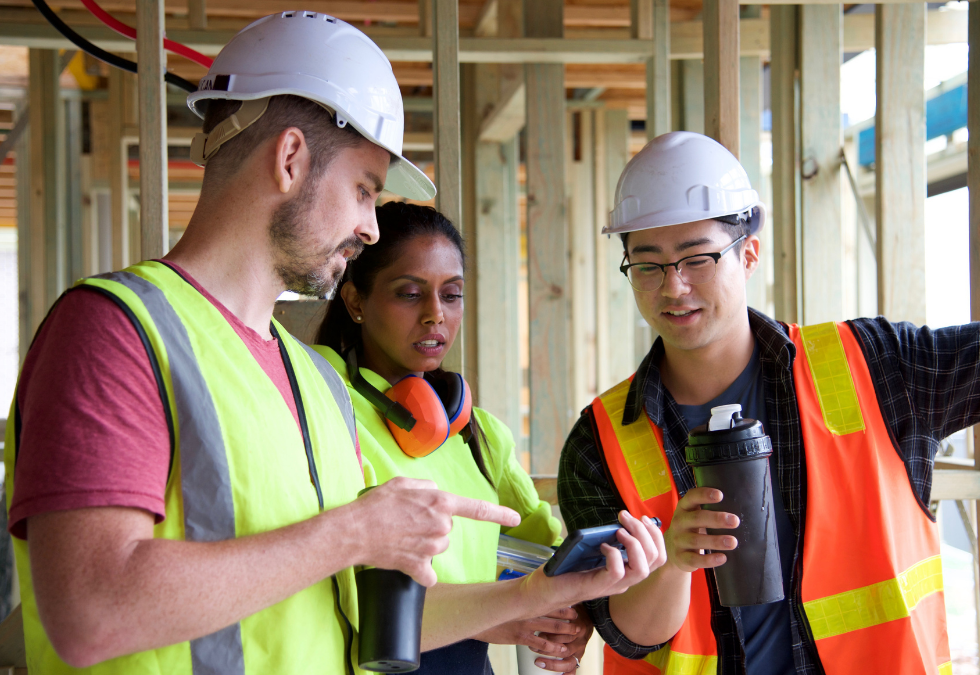By Mike Pallerino
As a passionate diversity professional advocating for equity in the marketplace, workplace, workforce and society in general, I have a certain perspective on inclusion and access to the construction industry that may surprise some people.
But first, the facts. According to the Bureau of Labor Statistics, only 10.9% of construction professionals are women, 30% are Hispanic or Latino, 6% are Black, and just 2% are Asian. While the US does not collect data of LGBTQI+ representation in the workforce, in the UK, only 2% of the construction workforce identify as part of the LGBTQI+ community.
This does not represent the general population and means that the commercial construction industry—and our clients and partners—is not yet taking full advantage of the skills, perspectives and experiences the workforce has to offer.
At JE Dunn, where I work from our Dallas office as the South Central Region Diversity, Equity and Inclusion Manager, we believe and have found that diversity and inclusion fosters innovation and creative thinking. Critically, we do more than say that diversity and inclusion matter. Our accelerated, applied approach is designed to help our employees continue to flourish in their careers.
Not only do we recognize the value of having well-rounded professionals lead a diverse set of projects, but through the collaboration of innovative thoughts and ideas, we are able to promote a culture of inclusion where everyone feels like a valuable contributor to the company’s success.
And I can tell you firsthand: That makes all the difference in the world. At JE Dunn, diversity and inclusion is not simply a box to check; it’s a part of the creative culture we are proud to be recognized for.
When looking inward at our workforce, even with a robust campus recruiting strategy, we realized it did not adequately reflect the communities where we live and work. With limited diverse construction talent, we decided to build our own talent pipeline. Because we are recruiting from a limited pool of diverse construction talent from the same schools as our peers, we enhance our recruitment strategy to include intentional recruitment efforts at historically black colleges and universities.
We also are proud to work nationally and regionally on scholarship commitments. But we are not solely focused on diversity and inclusion for the JE Dunn pipeline alone.
JE Dunn recently was one of only six companies—and the only construction company—in Houston awarded in the Houston Business Journal’s “Outstanding Supplier Diversity” category for its annual “Diversity in Business Awards.” This is a proud moment and I want to tell you why.
At JE Dunn, diversity and inclusion is not simply a box to check; it’s a part of the creative culture we are proud to be recognized for.
We have what we call a three-pillar strategy for diversity and inclusion: workforce, workplace and marketplace. To enhance our approach in building a diverse workforce, we partner with organizations across the nation that invest in diversity and inclusion—engaging with them consistently to help us identify and attract diverse talent. But we know that we do not and cannot operate in a silo. JE Dunn exists in an ecosystem of talent and a larger culture that affects access and professional development in construction.
That is why we are proud to have a longstanding commitment to helping minority-owned and women-owned businesses succeed. Our “Minority Contractor Development” Program is a series of classes and activities designed to educate and equip minority and women contractors for success, help grow their businesses and launch a partnership with companies like JE Dunn. The program is free of charge for participants for around a dozen businesses that are selected through an application and interview process.
Just one recent example of how this program can manifest. At the George Bush Intercontinental Airport in Houston, we achieved 40% MBE trade partner participation when only 38% was required. We have successfully achieved high levels of participation across industries, including the public sector.
We received a major kudos from Mark Praigg, Business Advisor with the Houston MBDA Business Center, who said, “There are firms that we think are sincere about their diversity and inclusion efforts and JE Dunn was one of them. I saw JE Dunn is receiving a major contract at the airport. What really impressed me was the number of MBEs and WBEs you have engaged for the project including four of our clients. This shows a real commitment on JE Dunn’s part.”
It is important to note that we do not do diversity and inclusion work for the praise or the points. We invest in this work and do our best to lead in the space because we think it is right—right for our company culture, right for the industry, right for the communities where we are honored to serve and right for the people whose lives we seek to enrich. Building a diverse and inclusive workforce pays dividends for everyone and I am thankful to be building a bigger table, as they say.
So here’s what may surprise you. Diversity and inclusion are not critically important to construction companies, our clients and the larger ecosystem in which we work because of the way it makes people feel. It makes the planning, build and business outcomes better. It makes our perspectives more informed and our teams stronger.
Does it feel good? You bet it does, but that is not what makes it so important. Diversity and inclusion make the industry more robust.
See Original Article at Commercial Construction & Renovation



